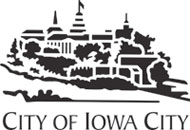Article from: www.thenewspaper.com/news/39/3925.asp
10/17/2012
Iowa: Proposed Citizen Initiative Would Ban Traffic Ticket Drones
ACLU of Iowa promotes giving Iowa City residents the chance to adopt the most sweeping ban on photo enforcement in the nation.
 The American Civil Liberties Union (ACLU) is taking up the fight against red light cameras and speed cameras in Iowa. Earlier this month, lawyers from the left-leaning activist group sent an affidavit to the city council in Iowa City containing the text of a proposed initiative banning the use of all forms of photo enforcement -- including license plate recognition cameras (ALPR or ANPR) and the use of drones. Residents had called the ACLU for help after city attorney Eleanor M. Dilkes took action to block citizens from ever voting on the topic.
The American Civil Liberties Union (ACLU) is taking up the fight against red light cameras and speed cameras in Iowa. Earlier this month, lawyers from the left-leaning activist group sent an affidavit to the city council in Iowa City containing the text of a proposed initiative banning the use of all forms of photo enforcement -- including license plate recognition cameras (ALPR or ANPR) and the use of drones. Residents had called the ACLU for help after city attorney Eleanor M. Dilkes took action to block citizens from ever voting on the topic.
"We are becoming involved because of the importance of this issue to the access all Iowa City residents will have to the democratic processes protected by the charter," ACLU staff attorney Rita Bettis and legal director Randall Wilson wrote. "The city attorney's position is one that encourages a content-discriminatory basis for evaluating whether direct citizen action is time-barred or not in a given case. Such an interpretation runs afoul of the city charter and well-established principles of statutory interpretation."
The ACLU lawyers helped draft legally correct language for residents Aleksey Gurtovoy and Martha Hempel to submit for public consideration. Their previous two attempts to let voters decide on the use of cameras was summarily rejected by Dilkes. The city attorney insisted the proposed charter amendments prohibiting cameras were really just a referendum repealing the city ordinance authorizing the use of cameras. Under the charter, a referendum must be filed within 60 days after the ordinance takes effect. Photo ticketing firms have used the same line of legal argument in other cities such as Houston, Texas only to meet with defeat at the polling booth. The ACLU lawyers pointed to Iowa City's own charter to prove such an initiative is entirely within the scope of the law.
"It is intended that no initiative petition will be invalid because it repeals an existing measure in whole or in part by virtue of proposing a new measure and an initiative petition may amend an existing measure," Iowa City Charter Section 7.01(C)(2) states.
The proposed initiative would also ban the use of unmanned aerial vehicles for routine traffic surveillance. If approved, drones could only be used to investigate a specific criminal act on the authority of a warrant (or case of emergency). This would constitute the country's most sweeping ban on surveillance cameras ever enacted.
"The city of Iowa City, including its various boards, agencies and departments, shall not use any automatic traffic surveillance system or device, automatic license plate recognition system or device, domestic drone system or device for the enforcement of a qualified traffic law violation, unless a peace officer is present at the scene, witnesses the event and personally issues the ticket to the alleged violator at the time and location of the violation," the proposed charter amendment states.
Gutovoy and Hempel will have six months to gather the signatures needed to put the measure on the 2013 ballot.
 The American Civil Liberties Union (ACLU) is taking up the fight against red light cameras and speed cameras in Iowa. Earlier this month, lawyers from the left-leaning activist group sent an affidavit to the city council in Iowa City containing the text of a proposed initiative banning the use of all forms of photo enforcement -- including license plate recognition cameras (ALPR or ANPR) and the use of drones. Residents had called the ACLU for help after city attorney Eleanor M. Dilkes took action to block citizens from ever voting on the topic.
The American Civil Liberties Union (ACLU) is taking up the fight against red light cameras and speed cameras in Iowa. Earlier this month, lawyers from the left-leaning activist group sent an affidavit to the city council in Iowa City containing the text of a proposed initiative banning the use of all forms of photo enforcement -- including license plate recognition cameras (ALPR or ANPR) and the use of drones. Residents had called the ACLU for help after city attorney Eleanor M. Dilkes took action to block citizens from ever voting on the topic.